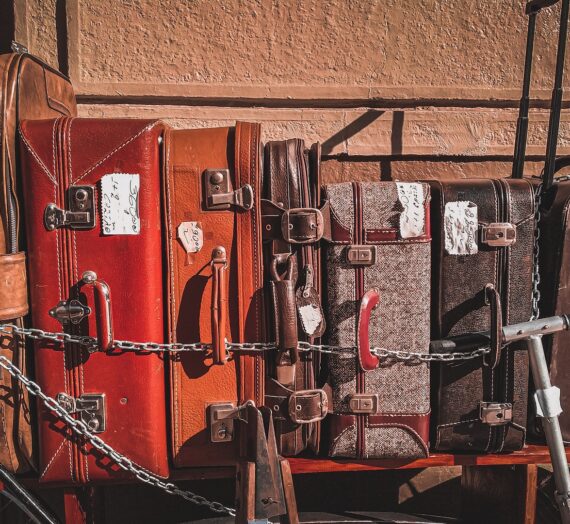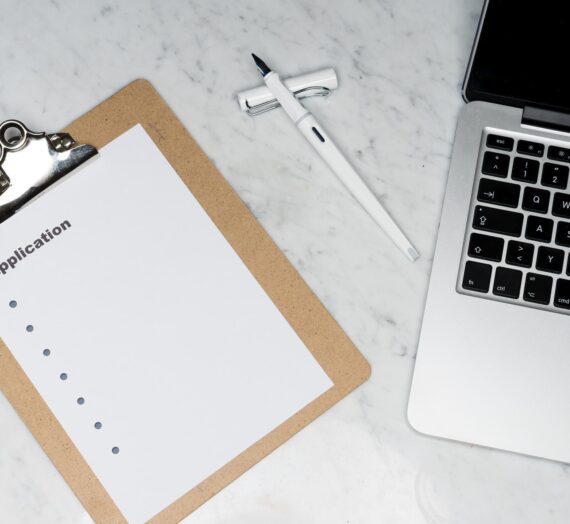Take it from me. Once you receive that email saying CONGRATULATIONS/FELICITATIONS, it’s easy to lose yourself in the fantasy of living in France. Maybe that fantasy is sipping wine at the top of the Eiffel Tower. Mine was spinning in an open field reminiscent of Belle from Beauty and the Beast (I was assigned to Normandy). However before you can fulfill anything close to that fantasy, preparation is crucial. In my case, preparation and a blue dress. Preparation that can range from slightly annoying to a downright pain in the ass. This post won’t be a comprehensive list of steps to take before you embark on TAPIF. I’d bore myself half to death writing it, never mind reading it. Instead, I want to share aspects of preparation that you don’t consider or find out until after you’ve strapped in for the TAPIF roller-coaster.
Get your Police Record
I can’t speak for how it works in other countries, but getting a police record in Jamaica is that aspect of preparation I was referring to when I said “downright pain in the ass”. Don’t take this suggestion lightly. When I say get your police record, I mean don’t wait until FEI or your local recruiter tells you to get one. If you’re Jamaican, that means pay for it at your nearest Tax Office and schedule your appointment yesterday. Your school in France will ask for it to send to the Rectorat. And as I understand it, you’re required to upload it to ADELE in order to receive your arrêté de nomination – your work contract. Which you’ll need in order to apply for your visa. In simple terms, a delay in getting your police record = delay in applying for a work visa = a delay in coming to France.
Translate your Documents
It almost goes without saying, but I’ll say it anyways. If you’re reading this guide then you’re a prospective or current language assistant going to France. Therefore, you’re native language and your documents are not French. When you start working at your school or doing administrative things in relation to settling in France, you’ll need your documents and translations of those documents. If you plan to apply for French universities, you’ll need those translations even more.
I suggest that you have those documents translated before you step foot on the plane. French bureaucracy makes every process exponentially longer. So you don’t want to hinder the process by waiting for translations. More importantly, having documents translated by a certified translator in France will be vastly more expensive than having your local Alliance Francaise do it. Imagine the difference between paying 50 euros for all of your documents as opposed to a couple hundred euros for each document. Now imagine your tight budget on an assistant’s salary. Do yourself a favour. And while you’re at it, ensure that you have physical and digital copies of your documents and those translations.
It’s Gonna Cost You
At first glance this seems obvious but it’s very easy to lose track of how much money you’ll need and spend when you first get to France. Better you hear it from me now then get a painful reminder later. You won’t see any money for A WHILE when you first start TAPIF. When you arrive in France in mid to late September, you’re covering your travel expenses and initial moving costs. Then in October, you won’t see your entire salary. Assuming you open your bank account and give your banking details to your school before October 10, you’ll receive about 80% of your monthly salary. The rest will come be paid with your November salary. However, after October 10, you’ll have to wait until the end of November to receive two months’ salary.
Hopefully that information encourages you to be proactive about starting a bank account as soon as you touch French soil. At the same time, it’s advised that you bring enough money to hold you over until the end of October. Depending on your budget and expenses, 1000-1500€ is enough. In light of the current abysmal exchange rate between Jamaican dollars and Euros, I suggest you start earning, saving and converting money as soon as possible.
Extra Tip: If you plan to travel with an international credit/debit card, contact your bank. They can put a travel notice on the card for several months so that you can use it abroad. Even if you don’t plan to use your card, advise your bank just in case. I’d also suggest carrying some of that money in cash.
Pack Smart
Yes, I’m aware that I promised this post would cover the least apparent aspects of TAPIF prep, and packing is the most apparent. Depending on how you see 7½ – 8 months, that is either a very long time to be away from home or a short time in the grand scheme of life. And you need to balance those two conflicting ideas as you decide what to bring versus what stays. Obviously, I can’t tell you exactly what to bring. Though I will write a post or two on what I brought. I can also implore you to spend some time considering the mundane objects. The smaller things that make your life easier by just being there when you need them. Ask yourself:
- How often do I use this? Realistically, not ambitiously
- How difficult/inconvenient/disastrous will my life be if I don’t have it?
- Can it be mailed to me?
- Is it possible for me to buy another one in France?
- Is it possible for me to do without it for 7 – 8 months?
Those questions helped me to prioritize objects like a pair of scissors and the pin to open my SIM card slot. And leave my yoga mat, which would’ve taken up valuable suitcase space.
Get a Clean Bill of Health
Honestly, this deserved to be at the first item on the list. But I hoped that putting it last would make the most impact. I’ll know who hasn’t finished reading this post if assistants start dropping like flies.
The best thing I could have done prior to leaving for France was to visit all of my doctors. Which sounds counterintuitive because I couldn’t wait to get a Carte Vitale; the magic green card to free/discounted healthcare. Nonetheless, it’s a good thing I went to the doctor months in advance because I found out I wasn’t in the best of health to fly. And I needed to solve that health issue or else I would be risking my life stepping on that plane.
There are countless other circumstances besides mine that would warrant a doctor’s visit. Do you have a medical condition that requires constant attention? Are you on certain prescribed medication? Having the French healthcare system at your disposal sounds satisfying, especially for your bank account. But allow me to ruin the fantasy. Thanks to French bureaucracy, affectionately known as Public Enemy #1 on this blog, it’s very likely you that you won’t see your Carte Vitale for a while. Much like your first full month’s salary. Moreover, you’ll need to visit a French doctor and likely do tests before you’re given a prescription for (hopefully) your usual medication. Save yourself the hassle and ask your current doctor to prescribe six months’ worth of medication, and take the medicine with you.
Admittedly, my skepticism also comes from a place of fear. I don’t trust my language skills to carry me through a medical emergency or even a doctor’s appointment. Ask yourself if your French is good enough to describe the nuances of your condition or pain with accuracy and precision. Or are you limited to “ j’ai mal à la/au…” which you learned in beginner’s French?




